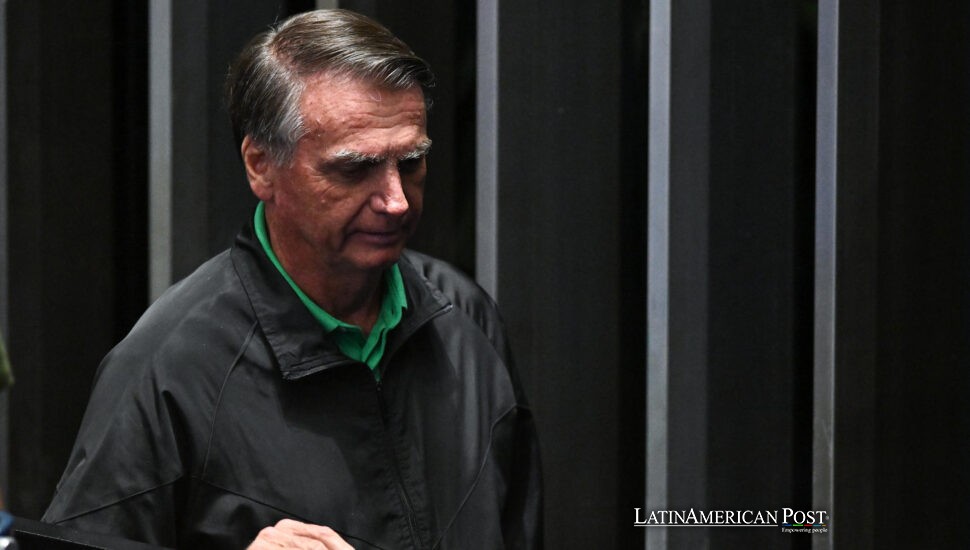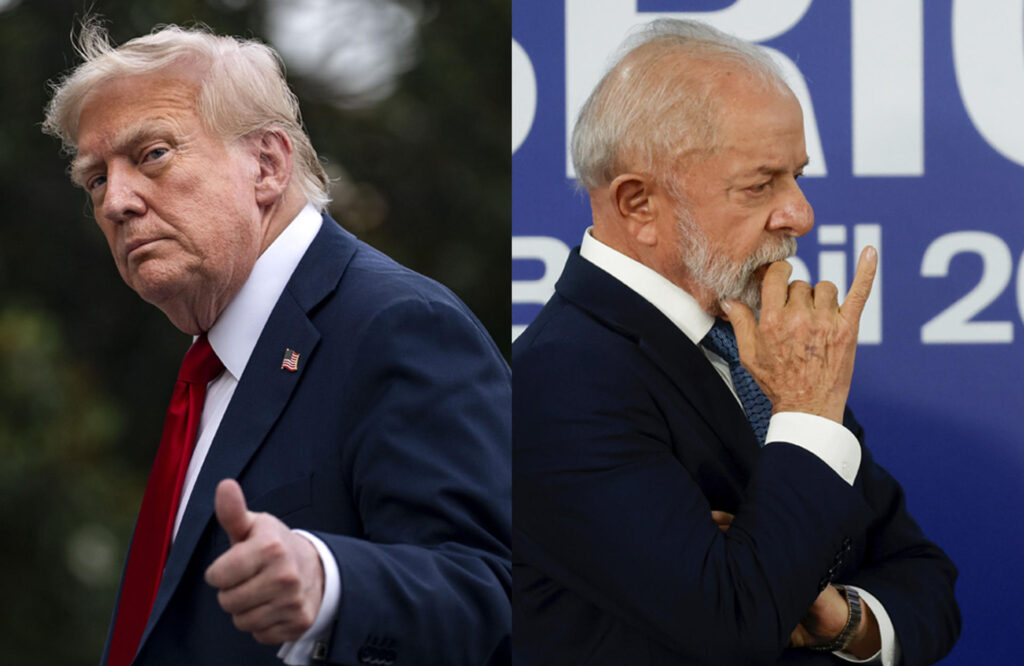Brazil’s Supreme Court Pushback Signals a Nation Unwilling to Trade Justice for Tariff Relief

With Jair Bolsonaro wearing a court-ordered ankle monitor and Donald Trump threatening punishing tariffs, Brazil faces a historic test. Its Supreme Court isn’t flinching—asserting that justice will be served in Brasília, not bartered away in Washington.
The Constitution, Not the Campaign Trail
In his ruling, Justice Alexandre de Moraes didn’t just silence Jair Bolsonaro on social media or slap an ankle bracelet on the former president—he issued a declaration: Brazil’s justice system answers to its Constitution, not to foreign pressure.
Citing evidence that Bolsonaro and his son Eduardo sought to “induce, instigate and assist a foreign government in hostile acts against Brazil,” Moraes elevated the case from a post-election grudge to a matter of national sovereignty.
And the timing couldn’t be sharper.
Just days before the decision, Donald Trump threatened a 50 percent tariff on Brazilian goods unless the court dropped what he called a “witch hunt.” But in Moraes’s courtroom, that wasn’t a bargaining chip—it was confirmation of obstruction.
“When the leader of a foreign country uses trade threats to protect an indicted politician,” Moraes wrote, “the judiciary must defend its autonomy.”
In a single sentence, he reframed the conflict from legal drama to constitutional crisis.
Tariffs and Threats: What’s Really at Stake
Trump’s demand landed like a thunderclap across Brazil’s soybean fields, shipping lanes, and presidential palace. The former U.S. president—poised for another term—framed his threat not as foreign meddling, but as economic leverage to stop a political prosecution.
President Luiz Inácio Lula da Silva fired back swiftly on national television: “Brazil does not accept blackmail.”
He reminded viewers that U.S.–Brazil trade has historically favored Washington, and that Brazil could retaliate by taxing ethanol, farm machinery, or aircraft parts—industries with significant influence in swing states.
But Lula also struck a more resounding chord. The heart of his speech wasn’t about exports. It was about the sanctity of Brazil’s independent judiciary.
“This isn’t a trade dispute,” he said. “It’s about whether Brazilian courts will be allowed to do their job.”
Anderson Pomini, president of the Santos Port Authority, told EFE that while exporters are bracing for impact, many understand the stakes go far beyond tariffs. “We can recover lost markets,” he said. “But we can’t recover the rule of law if we let it collapse.”

Bolsonaro’s Own Words Raise Red Flags
Though Bolsonaro called his monitoring bracelet a “supreme humiliation,” his behavior reinforced the court’s concerns.
He has admitted to exploring “constitutional alternatives” to contest his 2022 election loss, and court filings show that he planned to negotiate tariff relief directly with Trump, despite having surrendered his passport.
Meanwhile, his son, Eduardo Bolsonaro, spent months in Washington meeting lawmakers, echoing the claim that the prosecution was politically motivated. He openly supported Trump’s tariff threats as “legitimate retaliation.”
Justice Moraes saw the pattern clearly: a defendant leveraging foreign alliances to derail domestic justice.
To prevent that, the court also banned Bolsonaro from contacting co-defendants or embassies, effectively severing his diplomatic lifelines. The message was unequivocal: legal accountability must be fought and resolved inside Brazil’s borders.
As legal scholar Marcela Lisboa told EFE, “This isn’t punitive—it’s protective. The court isn’t punishing Bolsonaro for his politics. It’s protecting the trial from turning into a trade negotiation.”
A Precedent That Can’t Be Reversed
Critics warn that high-profile restrictions could elevate Bolsonaro’s martyr image, handing him political momentum. But Brazil’s legal establishment is betting on a different truth: democracy collapses when the powerful can shop for protection abroad.
If Bolsonaro’s allies succeed in halting prosecution through tariffs or international pressure, future presidents—and generals, governors, or business moguls—may try the same. What Brazil’s Supreme Federal Court does now will set the tone for generations to come.
Brazil isn’t alone in navigating this terrain. Across Latin America, democracies are being tested by strongman politics, foreign entanglements, and economic blackmail. What makes Brazil’s moment different is that its institutions are choosing to resist.
The court’s decision to stand firm is consistent with regional charters, such as the Inter-American Democratic Charter and Mercosur’s Ushuaia Protocol, both of which enshrine the protection of constitutional order over outside interference.
The coming weeks will stretch that resolve. Trump insists that tariffs will take effect on August 1 unless the proceedings are stopped. Lula has authorized quiet diplomacy but made clear that retaliation will follow if coercion continues.
Business lobbies may be nervous, but so far, they’re siding with sovereignty. As one Brazilian trade official put it, speaking to EFE on background: “You can fix trade. You can’t fix surrendered courts.“
From the outside, it may look like a familiar clash: a populist leader under fire, a courtroom packed with legalese, and two presidents trading threats across continents.
But inside Brazil, something more profound is happening.
The country’s highest court has drawn a line—and put Bolsonaro, not behind bars, but on GPS lockdown and off the diplomatic grid. It’s a bold move. And it may cost Brazil millions in export penalties.
But the cost of folding? That’s far higher.
Also Read: Latin America’s Leftists Waltz with Iran in a Dangerous Tango
Because when sovereignty is traded for silence, what remains isn’t democracy—it’s dependence.
Credits: Based on reporting and interviews by EFE with Justice Alexandre de Moraes, President Luiz Inácio Lula da Silva, Anderson Pomini (Santos Port Authority), legal scholar Marcela Lisboa, and senior Brazilian trade officials. Tariff and trade data sourced from Brazil’s Ministry of Economy and U.S. trade filings.




